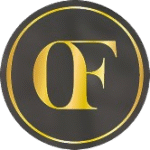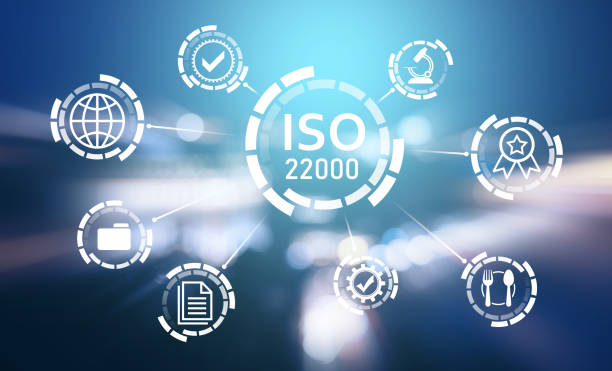Picture this: you’re grabbing a quick bite at your favourite café, savouring a perfectly crisp salad. But then a thought creeps in—what if the ingredients aren’t as safe as they seem? Food safety isn’t just a buzzword; it’s a lifeline for consumers and businesses alike. That’s where ISO 22000 steps in, a global standard that keeps food supply chains tight and trustworthy. And if you’re curious about playing a key role in that process, an ISO 22000 internal auditor course might just be your ticket to making a difference. Let’s break it down and see why this course isn’t just for food safety nerds—it’s for anyone who wants to keep things safe and sound.
Why ISO 22000 Is a Big Deal in the Food World
Food safety scandals aren’t just headlines; they’re wake-up calls. Remember the E. coli outbreaks tied to leafy greens a few years back? Or the salmonella scares in poultry? These incidents hit hard—consumers lose trust, and businesses lose millions. ISO 22000 is the gold standard for managing food safety risks, covering everything from farm to fork. It’s a framework that helps companies spot hazards, control risks, and ensure their products are safe to eat.
Why does this matter to you? Because food safety isn’t just about avoiding lawsuits; it’s about protecting people. Whether you’re in manufacturing, catering, or even retail, ISO 22000 gives you a roadmap to keep things clean—literally and figuratively. And with consumers demanding more transparency than ever, companies are scrambling to prove they’re doing things right. That’s where internal auditors come in, and trust me, they’re not just sitting in a corner checking boxes.
What’s an Internal Auditor, Anyway?
Here’s the thing—internal auditors are like the health inspectors of a company’s food safety system. They poke around, ask tough questions, and make sure everything’s up to snuff. Their job is to dig into processes, spot risks before they become disasters, and ensure the company’s following ISO 22000 to the letter. Think of them as the backstage crew making sure the show (or in this case, the food) goes off without a hitch.
Auditors don’t just point out problems; they help fix them. They’re the ones who catch a faulty storage practice before it leads to contamination or flag a gap in training before it snowballs into a recall. It’s a role that’s equal parts detective, coach, and guardian. And the best part? You don’t need to be a food safety guru to get started—just a willingness to learn and a knack for paying attention to details.
Breaking Down the ISO 22000 Internal Auditor Course
So, what’s the deal with the ISO 22000 internal auditor course? It’s a training program designed to turn you into a food safety sleuth. Most courses run for 2–5 days, depending on the provider, and they’re offered both online and in-person. Online options are gaining steam—especially for folks juggling busy schedules during harvest season or holiday rushes. You’ll cover the nuts and bolts of ISO 22000, including:
- HACCP Principles: How to identify and control hazards in food production.
- Risk Assessment: Spotting potential weak points in the supply chain.
- Audit Techniques: Learning how to plan, conduct, and report on audits.
- ISO 22000 Clauses: Understanding the standard’s requirements inside and out.
Many courses are accredited by organizations like Exemplar Global or IRCA, which adds serious cred to your resume. You’ll walk away with practical skills, like how to write a killer audit report or spot non-conformities (fancy term for “things that aren’t quite right”). Honestly, it’s like learning to be a food safety superhero, minus the cape.
Who Should Take This Course (And Why It’s Not Just for Experts)
You might be thinking, “This sounds great, but isn’t it for people who already know a ton about food safety?” Not at all. The ISO 22000 internal auditor course is designed for a wide range of folks—quality managers, food safety officers, production supervisors, or even career-switchers looking for a new path. If you’re in the food industry or want to break into it, this course is a fantastic stepping stone.
Ever thought about being the one who catches problems before they hit the headlines? That’s what this course empowers you to do. You don’t need a PhD in food science—just a curiosity for how things work and a drive to make them better. Whether you’re a restaurant manager wanting to up your game or a newbie dreaming of a career in food safety, this course meets you where you are.
What You’ll Gain from the Course
Let’s talk benefits, because this course isn’t just about checking a box—it’s about building skills that matter. Here’s what you’ll walk away with:
- Practical Know-How: You’ll learn how to plan and execute audits, write reports that get attention, and spot issues before they spiral.
- Career Boost: Certified auditors are in demand, especially as food safety regulations tighten. This credential can open doors to roles in quality assurance or compliance.
- Confidence: There’s something empowering about knowing you can walk into a facility and ensure it’s safe for consumers.
Take this real-world example: a trained auditor at a dairy plant notices a storage unit running slightly above the safe temperature. They flag it, fix it, and prevent a potential spoilage issue that could’ve cost the company thousands—not to mention the PR nightmare. That’s the kind of impact you can have. It’s not just a job; it’s a chance to take control and make a difference.
Not All Courses Are Created Equal, You Know
Choosing the right course provider is key. You want a program that’s accredited, taught by experienced instructors, and flexible enough to fit your life. Companies like TÜV SÜD, BSI, or SGS offer solid programs, but do your homework—check reviews, ask about instructor credentials, and see if the course offers hands-on practice. Some providers even include mock audits, which are gold for building confidence.
If you’re balancing a crazy schedule (say, during the holiday baking frenzy), look for online courses with self-paced options. Many providers now offer virtual classrooms that feel almost as engaging as in-person sessions. Just make sure the course aligns with your goals—whether it’s getting certified or just learning the ropes.
Ready to Take the Next Step?
The ISO 22000 internal auditor course isn’t just training—it’s a chance to step up, learn something valuable, and make a real impact. Whether you’re looking to climb the career ladder or ensure your workplace is doing food safety right, this course equips you with the tools to succeed. From understanding HACCP to mastering audit techniques, you’ll gain skills that matter in the real world.
So, what’s stopping you? Check out accredited providers, find a course that fits your schedule, and take that first step toward becoming a food safety champion. Because at the end of the day, it’s not just about keeping food safe—it’s about keeping people safe. And that’s something worth doing.
- ISO 22000 internal auditor course the Food World
- If you’re balancing a crazy schedule (say, during the holiday baking frenzy), look for online courses with self-paced options.
- ISO 22000 internal auditor course
Related posts:
 Nutrition and Wellness Programs in Assisted Living Communities in Oakville
Nutrition and Wellness Programs in Assisted Living Communities in Oakville
 Dresses Dry Cleaner services Lisle, IL: BY Napervalue Cleaners
Dresses Dry Cleaner services Lisle, IL: BY Napervalue Cleaners
 Easy EMI Card: Your Go-To Solution for Easy Monthly Payments
Easy EMI Card: Your Go-To Solution for Easy Monthly Payments
 Fitness for Mental Clarity: Unlock Your Focus and Inner Strength with DG FIT MIND
Fitness for Mental Clarity: Unlock Your Focus and Inner Strength with DG FIT MIND
 Top Carrier Oil Suppliers in India for Bulk & Wholesale Buyers
Top Carrier Oil Suppliers in India for Bulk & Wholesale Buyers
 Atlas Pro ONTV : La Révolution de la Télévision par Internet
Atlas Pro ONTV : La Révolution de la Télévision par Internet
 Welcome to Oasis Fitness: Your Path to Strength, Balance, and Renewal
Welcome to Oasis Fitness: Your Path to Strength, Balance, and Renewal
 Essentials Hoodie Design Philosophy: Minimalism Meets Statement
Essentials Hoodie Design Philosophy: Minimalism Meets Statement







